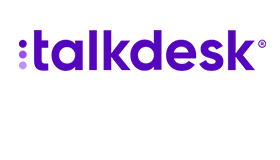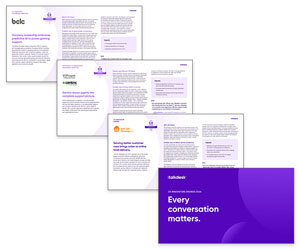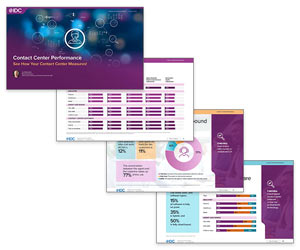Lindsey Plocek of Observe.AI – a Talkdesk partner – shares her thoughts on how to positively impact the performance of your remote agents.
Talking About Performance
It’s a blessing and a curse that the show must go on in contact centers right now. Talking about things like productivity and performance can seem so trivial during a pandemic.
On top of that, many of us are telecommuting for the first time. We may have people joining our teams who we’ve never met in person. Suddenly, we may have a lot less time to meet one-on-one with our agents, too.
How should contact center leaders talk about performance and coach teams? What should be avoided? Here are four “dos” and “don’ts” to consider.
Do Open Your Meetings With “How Can I Help You?”
Now more than ever, it’s important that we “slow down to speed up”, rather than launching into the mechanics of the job, be sure to ask your agents: “How are you?” And deeply listen.
More specifically, try asking: “How’s the workload for you?” Since you can no longer see where they’re struggling or succeeding.
Here are engaging questions to ask agents and teams:
- How are you tracking toward the goals we set together?
- What’s standing in your way or holding you back?
- Is there something I can help you with right now?
- What’s one area you want to improve on?
If you don’t have time to meet with agents one-on-one, try organizing small group discussions with ring groups or regions, also known as huddles.
Use data to validate why agents should adopt new behaviors through micro-coaching sessions to improve every customer interaction.
Enable peer and self-coaching through platforms that help agents identify their own coaching opportunities and play back the most empathetic or most challenging calls.
Do Use Technology to Objectively Understand Performance
One thing many contact centers agree on is the importance of a fair way to understand remote agent performance.
At a time when it can be more difficult to raise hands for immediate help, how can agents self-coach if they don’t know how they’re doing when compared to the rest of the team?
As Dale Sturgill of EmployBridge explains, “The days of randomly pulling calls and scoring just 1% of them on 150 quality assurance items are over.”
Instead, teams at companies like EmployBridge use artificial intelligence (AI) to analyze each call and identify coaching opportunities.
Doing so provides greater transparency into the quality management process and helps teams identify small wins they can celebrate to build and maintain strong morale and motivation.
Don’t Throw Your Goals and Expectations Out the Window
With many teams settling into remote work and adopting new processes overnight, it’s easy to lose sight of the larger perspective.
Take a step back and try asking yourself these performance-related questions:
- How are we performing compared to industry benchmarks or another objective measure? Take the emotion out of it!
- What are one or two areas impacting our performance right now?
- What are one or two areas that each of my teams or direct reports can tackle to improve their performance?
A national home retailer, another customer we work with at Observe.AI, needed to improve its Customer Satisfaction Score (CSAT) and saw that they were losing points on empathy-related questions.
To improve, they coached agents on adopting compassionate phrases like “I’m so sorry to hear,” and “Is there anything else I can help you with?.”
With speech analytics and AI, this retailer monitored which agents were adopting the compassionate dialogues and saw their empathy CSAT jump 37% in just one month.
Don’t Forget to Empathize With Your Agents
At the end of the day, agents can only perform well if they’re feeling supported. It’s no secret that many contact center agents are having more difficult and sensitive calls now.
On the call center floor, when agents are having a bad day they can vent to colleagues. That’s more difficult to do at home. The agents at one pharmaceutical e-commerce company that partners with Observe.AI are no stranger to tough calls. For instance, people sometimes incorrectly blame these professionals for things that result from the nuances of the customers’ insurance plan.
That’s why this company uses speech analytics and AI to surface moments of really negative customer sentiment on calls. They then leave comments to motivate, coach, or encourage agents via Observe.AI. By celebrating more successes and offering encouragement, you can help agents improve with context.
If you have a way to surface these interactions, try sending your agents words of encouragement and let them know you’re available to talk. Or, host a group discussion where agents can vent about the tough moments they faced on calls and brainstorm new approaches together.
This blog post has been re-published by kind permission of Talkdesk – View the Original Article
For more information about Talkdesk - visit the Talkdesk Website
Call Centre Helper is not responsible for the content of these guest blog posts. The opinions expressed in this article are those of the author, and do not necessarily reflect those of Call Centre Helper.
Author: Talkdesk
Published On: 12th May 2020 - Last modified: 14th May 2020
Read more about - Guest Blogs, Talkdesk






 Talkdesk is a global customer experience leader for customer-obsessed companies. Our contact center solution provides a better way for businesses and customers to engage with one another.
Talkdesk is a global customer experience leader for customer-obsessed companies. Our contact center solution provides a better way for businesses and customers to engage with one another. 












